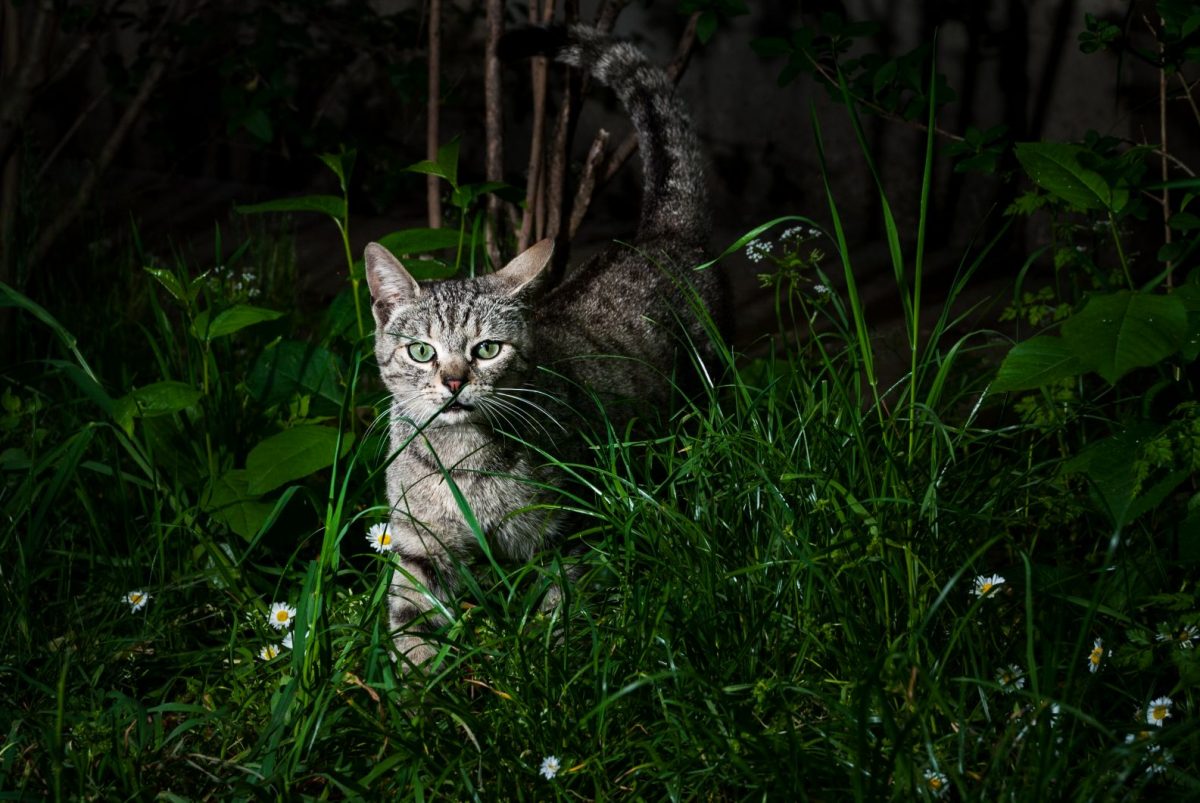Encouraging your dog to howl is not cruel as long as you’re not forcing or punishing them. Howling is a natural behavior for dogs, similar to their wolf ancestors, and can be a form of communication or expression of their emotions.
The question of whether it is cruel to make a dog howl delves into the complex relationship between human companionship and animal instincts. Dogs, known for their loyalty and adaptability, share an intricate bond with humans that spans thousands of years.
Here, you will get to know why your furry friend is howling.
Why is your dog howling? (understanding the reason)

Communication and Expression
Similar to their wolf ancestors, dogs employ howling as a primal means of communication. This timeless behavior serves to convey messages across vast distances, acting as a canine telegram. Consequently, it alerts others to their presence and location, essentially functioning as a signal that invites interaction.
Dogs commonly howl as a way to get noticed by their human companions. This instinctual behavior serves as their easiest method of capturing your focus in various situations.
Furthermore, People naturally respond to loud sounds, inadvertently reinforcing the behavior. When a dog howls and receives attention from you, they learn that their howling gets results. This realization creates a pattern – they believe their vocalization affects your choices, leading them to repeat the behavior whenever they desire attention.
Emotional Outlet
Linking to their emotional world, howling becomes a crucial channel for expression. The pitch and intensity of a dog’s howl might mirror its emotional state.
For instance, exuberance can find its outlet in enthusiastic howling, whereas distress, anxiety, and loneliness could equally manifest through this ancient vocalization.Also this anxiety can cause of separation issue.
Moreover, bouts of frustration and ennui might prompt a howling response.
Environmental Feedback
Dogs remain deeply attuned to their surroundings, thus prompting their howling to often mirror their environment. Whether in response to blaring sirens, boisterous music, or even other howling dogs, canines effortlessly integrate their vocal contributions. Termed “contagious howling,” this behavior particularly flourishes in urban environments, where the symphony of neighboring pups seamlessly interweaves.
Defining Territory
In terms of territorial instincts, howling serves as a territorial declaration. The dog’s vocal proclamation asserts ownership over a specific space, serving as a cautionary note to others. In essence, this vocal gesture demarcates their domain, unambiguously conveying that trespassers are unequivocally unwelcome.
Breed-Specific Propensities
Certain breeds conspicuously exhibit genetic inclinations towards howling, reflective of their heritage and purpose. Beagles, for example, exemplify this trait through howls that resonate during hunts and play.
for example
- Beagle.
- Dachshund.
- Bloodhound.
- Siberian Husky.
- Alaskan Malamutes.
- Redbone Coonhound
- American English Coonhoun
This trait through howls that resonate during hunts and playbred for work, employ howling as a means of inter-dog communication. This behavior is firmly rooted in their ancestral roles, remaining a testament to their lineage.At last if you thence bredas you should buy ear plug
You reinforce it
When your dog howls because you howl, it’s because you’ve encouraged them. For instance, if they howl at a siren and you join in, then laugh and pet them when they howl back, they learn that howling gets them attention and rewards. They might even see it as a fun game and a way to make you happy.
Sometimes, you might be teaching them to howl on purpose, maybe for a party trick.
Over all, Dogs enjoy attention, so they might like showing off.It’s all good as long as it’s fun and friendly. But never force your dog to howl by being mean to them. This can make them scared or even aggressive, which isn’t good. Keep the howling happy and lighthearted!
3 tips on what to do if your dog howls when you howl

Approach #1: Teach the ‘Quiet’ Command
If your dog has begun howling along with your singing and you’d rather not turn every song into a canine duet, there’s a solution: training. Introducing the ‘Quiet’ command can help regain musical harmony.
To embark on this endeavor, follow these steps:
- First, elicit your dog’s howling by either singing yourself or playing a high-pitched sound recording.
- Once they cease their serenade, reward their silence with a treat – step one accomplished.
- Gradually extend the duration of their quiet moments before doling out treats.
- Once the connection is forged between silence and rewards, introduce the verbal cue ‘Quiet’.
- Upon their next howling episode, employ the ‘Quiet’ command, and when tranquility ensues, reward them anew.
- Reiterate this training multiple times throughout the day to solidify the behavior.
Approach #2: Refrain from Howling
In the realm of canine communication, if your dog’s howling seems endearing yet occasionally bothersome, consider this straightforward strategy: refrain from joining their melodic endeavors.
Since your dog responds to your vocal cues, avoiding howling alongside them can encourage them to temper their own vocalizations.
Approach #3: Distract and Redirect
Should your pup’s howling enthusiasm prove rather relentless, it’s time to employ redirection. Employing a “fight fire with a different type of fire” mentality, redirect their attention elsewhere when the howling begins its crescendo.
Summon their focus with an enticing activity – perhaps presenting their leash for an impending walk or introducing a playful ball for a game.
Bonus Technique: The Power of Ignoring
Aiming to be the center of attention, your dog’s howling often seeks your interaction. However, to temper this behavior, consider employing the strategy of deliberate ignorance.
Moreover, When they howl, simply turn away or exit the room, withholding the response they seek. By doing so, you gently communicate your disapproval without uttering a word. This, coupled with rewarding their hushed moments, cultivates an environment where silence becomes the key to garnering their needs.
What to do In Cases of Excessive Howling?
While howling is a natural form of communication for dogs, excessive instances may warrant veterinary attention. Moreover, dogs’ diverse behaviors, including howling, contribute to their uniqueness and endearing qualities as pets.
For those whose canine companions exhibit heightened howling tendencies, employing high-value treats can aid in managing excitement and stress linked to this behavior. In fact, options like longer-lasting rawhides, calming chews, or engaging treat-based games can prove helpful.
It’s imperative to recognize, however, that an overabundance of howling could indicate an underlying medical or behavioral issue. In particular, instances where howling becomes incessant, ignoring treats or occurring alongside problematic behaviors like biting, or in cases involving potential pain, should prompt a visit to the veterinarian.https://www.petmd.com/author/dr-tiffany-tupler
FAQs
Can Puppies Howl?
Yes, absolutely. Puppies have the capacity to howl, often using this vocalization to grab their owner’s attention.
Their howling can stem from various reasons, including hunger, thirst, boredom, or a desire for companionship. When a young puppy starts howling, it’s a part of their learning process to communicate their needs.
What Causes Dogs To Howl At Night?
Dogs that are left alone at night and have a tendency to howl might be expressing their unease about being separated from their litter or pack. This is particularly common when a dog transitions to a new home, especially if it’s accustomed to sleeping with people or other dogs. While this is usually a natural adjustment, persistent and excessive nighttime howling might indicate separation anxiety.
Is Howling an Innate Ability for All Dogs?
Yes, howling is a natural ability present in most dogs. It’s a form of communication deeply ingrained in their genetic makeup, stemming from their wolf ancestry.
How Can I Prevent Excessive Howling in My Dog?
To curb excessive howling, it’s important not to inadvertently reward the behavior. If your dog uses howling to seek attention, refrain from giving in to their demands. Instead, demonstrate that howling doesn’t lead to the desired outcome. Ignoring your dog until they stop making noise or rewarding them for being quiet can be effective strategies. The occasional treat for silence, especially in the face of triggering sounds like sirens, helps reinforce good behavior. Remember, consistency is key in training your dog to control its howling tendencies.
Do Dogs Enjoy Your Howling?
Yes, When you engage in howling and your dog responds in kind, it can be a special bonding experience. This shared vocalization might signify more than just mimicry – it’s a potential sign of closeness. Dogs often seek to mirror their human companions’ behaviors as a way to feel connected and familiar. Howling, being a skill they excel at, becomes a medium for expressing their connection with you.
Do Dogsfeel tired from Howling?
Yes, While barking itself may not inherently make them feel tired, the persistence of the behavior can lead to physical fatigue. As the barking goes on, dogs might experience a physical weariness. It’s important to note that if they sense their barks go unnoticed, even by other dogs, they might become mentally drained. This exhaustion stems more from the lack of acknowledgment rather than the barking itself.
Do dogs like it when you howl at them?
Yes, some dogs might enjoy it when you howl at them, while others may not be particularly fond of the experience. It depends on the individual dog’s temperament, past experiences, and comfort level with loud noises.
Conclusion
To sum up, the question of whether it is cruel to make your dog howl delves into a complex interplay between their innate behaviors, our human interactions, and the responsibilities we hold as caregivers. Recognizing that dogs’ howling serves as a means of communication, emotional expression, and even territorial assertion rooted in their ancestral heritage underscores the naturalness of this behavior.
However, ethical considerations arise when our actions inadvertently encourage or exploit their howling for entertainment or attention-seeking purposes. Striking a balance between respecting their instincts and ensuring their well-being demands a mindful approach.
Ultimately, it is our responsibility to ensure that any interaction involving a dog’s howling aligns with their best interests and fosters a bond based on trust, care, and mutual understanding.











